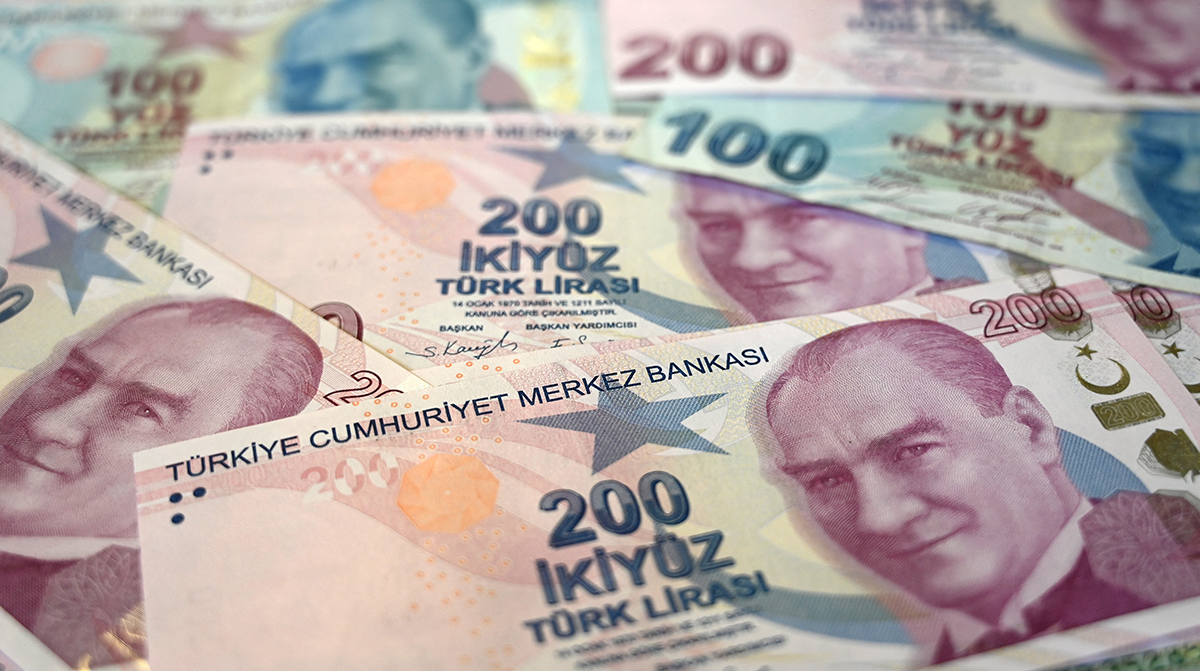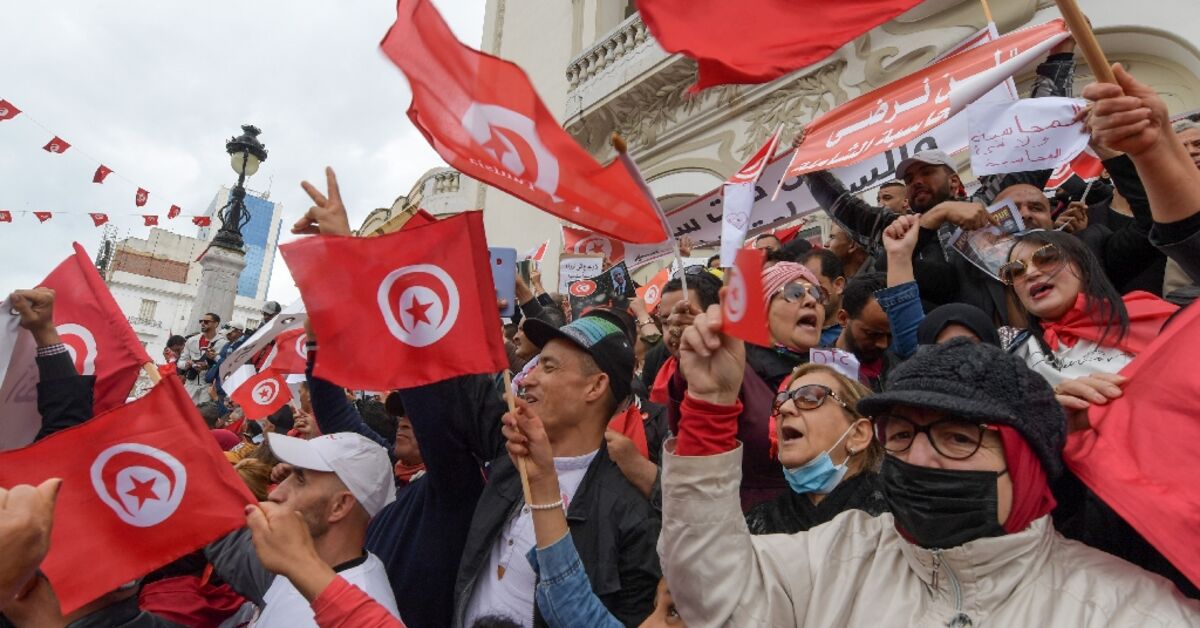[ad_1]
Turkey’s financial issues proceed to go from unhealthy to worse. Its overseas commerce deficit has reached a month-to-month common of $8 billion this 12 months. Amid the sharp rise in international power costs this spring following Russia’s invasion of Ukraine, the nation’s common gross power imports shot up from $3-4 billion monthly to $7-8 billion. A discount in power imports and the restoration of tourism this summer time haven’t offset this, and the present account deficit, the distinction between imports and exports for every type of products and companies, continues to widen. In accordance with the newest figures, the deficit reached $6.5 billion as of Could and this pattern might worsen within the fall. An annual deficit of $40 billion is anticipated for the subsequent 12 months.
The overseas commerce imbalance is just not the one drawback, nonetheless; a substantial quantity of short-term exterior debt can also be looming on the horizon. A complete of $182.4 billion of debt in exhausting currencies have to be paid again or rolled over within the subsequent 12 months. The Turkish financial system wants not less than $220 billion within the coming 12 months. There’s one other issue adversely affecting Turkey’s exterior steadiness as nicely, which is the appreciation of the greenback towards the euro. Whereas 58.4% of exterior debt and 71.2 % of imports are in {dollars}, Turkey’s revenues from exports and tourism are primarily in euros. Consequently, all else being equal, the exterior deficit is rising as soon as once more.
Capital inflows are tiny in contrast with outflows. Banks and large companies nonetheless have direct entry to exterior funding, however the Turkish Treasury is avoiding borrowing from worldwide markets because the near-term outlook is detrimental for emerging-market power importers. In any case, the price of contemporary debt shall be above 10% because the yields on 10-year U.S. Treasury bonds are almost 3% and Turkey’s perceived threat solely continues to extend. The credit score default swap (CDS) premium, paid yearly to ensure redemption of five-year dollar-denominated Eurobonds, is hovering round 8.5%. To sum up, exterior finance channels are nonetheless open, significantly for firms and monetary establishments, however prices are very excessive. There isn’t any expectation that market charges for the U.S. will decline given the 40-year report excessive inflation fee (9.1%) and the Turkish authorities’s insistence on sustaining uncommon financial insurance policies (whereby the coverage fee is 64.6% decrease than inflation).
The Central Financial institution of the Republic of Turkey’s (CBRT) gross overseas trade (FX) and gold reserves whole $100.9 billion. When its overseas forex liabilities are omitted, the online reserves are $7.5 billion. Nonetheless, most of its reserves don’t formally belong to the CBRT. As a substitute, $22.9 billion of them are owned by different central banks, together with these in Qatar, the UAE, South Korea, and China. Moreover, $38.9 billion of the reserves belong to industrial banks in Turkey. When each of those are deducted, together with present swap agreements, the online reserves are $-54.3 billion. As this makes clear, the CBRT has virtually no room to regulate the depreciation of the Turkish lira by promoting FX reserves. Furthermore, a lot of the $41.2 billion in gold reserves are saved in Turkey, not in a monetary heart like London or New York; thus, utilizing them as collateral for borrowing is troublesome. The current enchancment in relations with Saudi Arabia and the reciprocal visits by Turkish and Saudi leaders have up to now not offered any new assets, resembling a swap settlement, overseas direct funding, or direct lending to the Turkish Treasury.
Along with the veiled FX reserve gross sales coverage, a brand new mechanism for FX-protected deposits was launched in December 2021. Whereas it didn’t initially achieve a lot consideration, subsequent entreaties and warnings to the company and monetary sectors led to a major improve in its dimension, reaching a complete of $62.4 billion as of early July. The main goal of this mechanism is to offer a assure to financial institution depositors who preserve their financial savings in Turkish lira (TL) in case of additional depreciation of the native forex, with the Turkish Treasury or CBRT paying the surplus between the trade fee change and the yield. Regardless that it dramatically weakened the funds steadiness of the central authorities, monetary stability has been maintained in a really low coverage fee (14%) surroundings. The present client inflation fee is 78.6%, the producer inflation fee is 138.3%, and the market expectation for the patron value index (CPI) for the subsequent 12 months is 40.2%. On first look, this mechanism was solely partially profitable regardless of its important uncomfortable side effects: It prevented higher dollarization however failed to realize the purpose of changing massive numbers of FX accounts to lira. Greater than half of whole deposits in Turkey — 56.3% — are held in overseas forex or gold, and an additional 15.1% of them are in FX-protected deposits. Thus, the overall fee of deposit dollarization is a report excessive of 71.4%. Deposit rates of interest of round 20% and a insecurity within the authorities are the first causes for this.
The federal government’s predominant purpose is to win the subsequent election, however the financial system is making this more and more troublesome. Financial exercise is slowing and extra stimulus is required to extend households’ buying energy. There are two predominant instruments to perform this: further authorities spending and actual credit score development. Nonetheless, each instruments is not going to solely promote financial development however may also create overseas trade demand as a extreme facet impact. Subsequently, the federal government needs to open credit score channels for less than the true sector and shut the doorways to speculators borrowing TL and investing in FX.
New directions had been introduced by the Banking Regulation and Supervision Company to restrict entry to low cost credit score. Firms beneath the duty of exterior audit can borrow TL loans if their FX monetary belongings don’t exceed 10% of their gross sales or whole belongings. It’s a form of capital restriction for the true sector and an alert that stricter capital controls are probably coming. This choice has resulted in two separate outcomes: The primary is changing extra FX quantities to TL to acquire low cost loans and the second is canceling funding plans as worries about capital controls develop. Ministers and bureaucrats have repeated many occasions that there shall be no tighter capital controls because the Turkish financial system relies on uncooked materials imports to supply its industrial exports. Nonetheless, the continual extension of rules and limitations on the sources of overseas trade undercut these official statements and make them much less convincing.
One other device to advertise financial exercise is new authorities spending. There have been no new public investments or social transfers up to now. The primary cause for that is the dramatic improve in funds bills because of the depreciation of the Turkish lira. Of the central authorities’s debt, 67.7% is in FX or gold phrases, whereas simply 11.6% is linked to CPI. Public-private partnership tasks have FX-denominated cost ensures. Wage will increase for civil servants and pensioners are round 50% as each are semi-indexed to CPI, however that is nicely beneath the present client inflation fee of 78.6%. Briefly, rising prices are leading to a deteriorating fiscal steadiness within the absence of additional transfers and investments.
A considerable new funds, virtually as large because the preliminary full-year funds at 86% the scale, was proposed in June. This doesn’t imply new expenditures, nonetheless; as a substitute, the federal government is looking for extra sources to fund its funds deficit. Since households are reluctant to purchase authorities bonds given their 24% yields, solely banks will take part in new bond issuances. Nonetheless, demand from banks will depend on how a lot low cost lending the CBRT supplies to them, that’s to say, whether or not the CBRT will pursue financial enlargement, which can lead to heavy TL depreciation. If it does so, higher credit score development and new public expenditure will deliver a couple of sharp depreciation of the Turkish lira.
Turkey is caught between capital controls, TL depreciation, and sluggish development. The federal government has to decide on not less than one in all these, which means that both tighter capital restrictions, a forex disaster, or a lack of financial momentum shall be inevitable except an enormous new supply of FX is discovered. Insisting on the identical insurance policies will lead to a steadiness of funds disaster, which is the lack to redeem overseas forex money owed and pay the payments for imported items, as was seen lately in Sri Lanka. The ruling social gathering and its chief have been identified to be pragmatic and versatile when wanted, but up to now there was no shift in insurance policies. This comes at a time when international circumstances are solely making issues tougher for Turkey.
Regardless of mid-year wage raises for civil servants, pensioners, and minimal wage earners, buying energy is declining as Turkey is in an inflationary spiral. The shortage of crucial FX assets and the federal government’s want to advertise development is not going to solely result in a brand new forex disaster however a steadiness of funds disaster can also be probably as nicely. The credit standing for Turkey’s sovereign bonds is the bottom since 2002 and score companies’ outlook remains to be detrimental.
If the federal government doesn’t cease its present insurance policies, the result shall be a sudden cease, a pointy lower in output, and a credit score crunch, leading to a swift discount in loans. Subsequently, along with runaway inflation and forex depreciation, financial exercise will cease, resulting in a spike in unemployment. Latest opinion polls recommend the incumbent president’s re-election is much from safe. Making an attempt to keep away from early elections will solely improve the social rigidity. The second half of the 12 months will in all probability be disastrous for the Turkish financial system and the political penalties shall be dramatic and inevitable. It is going to be virtually unimaginable to keep up financial stability till the scheduled elections in June 2023.
M. Murat Kubilay is an impartial monetary advisor on the Turkish financial system and a non-resident scholar with MEI’s Turkey Program. The opinions expressed on this piece are his personal.
Photograph by OZAN KOSE/AFP through Getty Photos
The Center East Institute (MEI) is an impartial, non-partisan, non-for-profit, academic group. It doesn’t interact in advocacy and its students’ opinions are their very own. MEI welcomes monetary donations, however retains sole editorial management over its work and its publications mirror solely the authors’ views. For a list of MEI donors, please click on here.
[ad_2]
Source link








